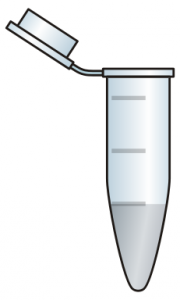Ding Ding
Round One in the watershed lawsuit over the patentability of human genes goes to the American Civil Liberties Union (ACLU) and breast cancer patients. In his ruling yesterday, Judge Robert W. Sweet of the Southern District of New York not only invalidated patent claims directed toward certain breast cancer genes, but directed the United States Patent and Trademark Office (USPTO) not to issue patents directed toward DNA from the human body or to the comparison or analysis of such DNA sequences. This ruling, if it stands, stops Myriad from preventing doctors from determining if their patients do, or do not, carry the BRCA1 or BRCA2 gene. These genes indicate a substantially increased risk the patient may develop breast cancer.
directed toward certain breast cancer genes, but directed the United States Patent and Trademark Office (USPTO) not to issue patents directed toward DNA from the human body or to the comparison or analysis of such DNA sequences. This ruling, if it stands, stops Myriad from preventing doctors from determining if their patients do, or do not, carry the BRCA1 or BRCA2 gene. These genes indicate a substantially increased risk the patient may develop breast cancer.
Patenting Products of Nature
Prior to this ruling, it had been the policy of the USPTO to deny patents on genes found in the body, but to grant patents on genes isolated using known techniques. Caselaw had long held things like living organisms and naturally occurring material are outside the realm of patentable subject matter. This judicially created “products of nature” exception to patentable subject matter stemmed from the Supreme Court ruling in Diamond v. Chakrabarty. Chakrabarty held that “laws of nature, natural phenomenon and abstract ideas” were not patentable. Isolated genes fell into the gray area between unpatentable products of nature and patentable compositions of matter.
Differentiating Prior Cases
Myriad directed the court to cases allowing patents on compounds found within living organisms, such as Parke-Davis & Co. v. H.K. Mulford Co. In Parke-Davis, Judge Learned Hand ruled that isolated adrenaline was patentable. Judge Sweet differentiated Parke-Davis as a case decided on 35 U.S.C. §102 anticipation (does it already exist), rather than on 35 U.S.C. §101 patentable subject matter (is it even patentable).
Dismissed as Dicta
In Parke-Davis Judge Learned Hand wrote that there was no rule that products extracted without change were not patentable. Judge Sweet found this language to be dicta, contradicted by subsequent Supreme Court cases requiring extracted products possess “markedly different characteristics” over products existing in nature to be patentable. Relying on Chakrabarty, Judge Sweet ruled Myriad’s BRCA1 and BRCA2 breast cancer gene compositions of matter patent claims were invalid as failing to possess such markedly different characteristics from the naturally occurring product as required under 35 U.S.C. §101.
In re Bilski
Judge Sweet then examined Myriad’s method claims, relating to the process for analyzing and comparing BRCA1 and BRCA2 DNA sequences to determine if naturally-occuring mutations exist. The Judge examined the claims using an In re Bilski analysis. Under Bilski, to be eligible for patent protection under 35 U.S.C. §101, a method must first meet a two-pronged “machine or transformation” test. While this test is typically reserved for internet-related “business method” patents, the test may be applied to any method claim as a threshold requirement.
Bilski’s MoT Test
The machine or transformation (MoT) test requires the claimed process either be tied to a particular machine or apparatus or transform a particular article into a different state or thing. Examining Myriad’s method claims in view of the Bilski MoT test, Judge Sweet ruled that simply “analyzing” or “comparing” DNA sequences did not rise to the level of a patentable transformation. Since Judge Sweet invalidated the claims at issue under 35 U.S.C. §101, he did not reach the Constitutional question as to whether human genes may be the subject of patents, and whether allowing such patents promotes the progress of science.
Just the Beginning
The ACLU and breast cancer patients can rejoice in taking round one of this fight, but Myriad will undoubtedly appeal Judge Sweet’s ruling. Given the Supreme Court’s pending ruling in Bilski and the Federal Circuit’s past rulings on the patentability of organisms and method patents, anything can happen. Regardless of how the Federal Circuit rules, it seems a forgone conclusion that the losing side will appeal this case to the Supreme Court. While the Supreme Court takes very few patent cases, if any case has the chops to make it to the bigs, Association for Molecular Pathology, et al. v. United States Patent and Trademark Office, et al. certainly could be a contender.





Recent Comments